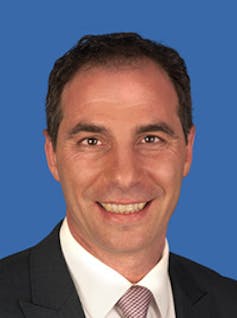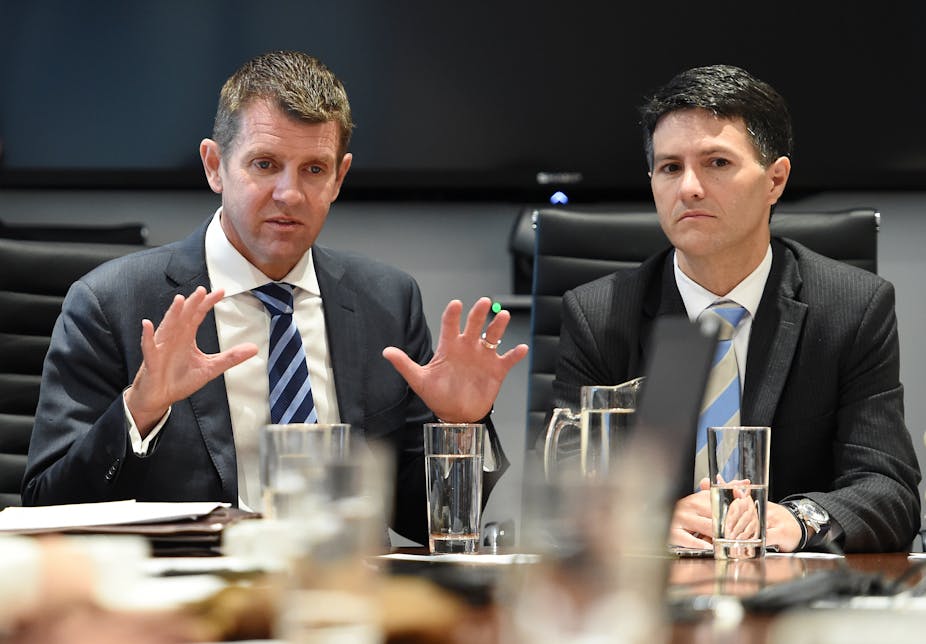The 2011 NSW state election delivered a swag of seats in western Sydney to the Liberal Party. Widespread dislike and distrust of the ALP re-focused the attention of many of the formerly Labor-voting ethnic communities on the potential benefits of a Coalition government.
In particular, the Lebanese Muslim Association threw its weight behind the Liberals and a raft of Muslim independents. The Labor machine, centred on Eddie Obeid and his lieutenants, crumpled under the corrosive evidence of corruption.
But over the past four years, trends evident at that time have taken new directions. The Obeid Labor machine, which had kept Muslims out of the parliament, has been replaced in many areas by invigorated networks run by younger, ambitious Lebanese Muslim, Indians, Bangladeshis and Turks – in addition to the already entrenched Chinese and Koreans.
The Lebanese Muslim Association did make a last-minute intervention, however. It criticised Labor leader Luke Foley, who is running for the lower house seat of Auburn – which has one of the highest Muslim populations in NSW.
Changing demographics and party attitudes
Class mobility in many of these communities has transformed the leadership from first-generation, often public sector union types, into more middle class activists ranging from real estate agents and developers to entrepreneurs, accountants and financiers. All are eager to enjoy the local property booms.
Communities from the sub-continent include many fluent English-speakers whose capacity to engage with Australian politics has been far more rapid than some of the earlier communities from non-English speaking backgrounds. Communities Minister Victor Dominello, marked for promotion after the election, has been vigorous in pushing his Multicultural NSW vision against an almost invisible Labor opponent.
These political trends were first evident in the transformation of local councils throughout Sydney’s west and southwest. No longer rotten Labor boroughs, they have attracted Liberals, independents, Greens and for a time Unity councillors. For example, Burwood Council in Sydney’s inner-west offers translations in Arabic, Greek, Mandarin and Korean. It overlaps with the state seat of Strathfield, where Labor mayor John Faker was likely to be the successful candidate until the ALP parachuted former Newcastle MP Jodi McKay into the seat.

Nearby, the seat of Auburn would have seen Muslim Lebanese-Australian and former mayor Hicham Zraika replace Christian Lebanese-Australian Barbara Perry as Labor candidate. However, they were both pushed aside as Foley gained lower house pre-selection. Auburn’s current Liberal mayor Ronney Oueik, who is Lebanese of dual religious backgrounds, is running against Foley. He has taken aim at Foley as a non-local.
A group, Change Auburn, has pilloried Foley for his pro-Israel and pro-Armenian views. This has touched on many local prejudices, given the strong Turkish and Arab population.
In nearby Lakemba, ex-Punchbowl High headmaster Jihad Dib will run to keep the seat in Labor Party hands. This marks a tidal shift in the ALP’s perspective.
Key multicultural issues
Multicultural issues are also stirring in NSW. They range from education, aged care and health through to political rights to commemorate unresolved overseas conflicts.
Multiculturalism has long included the principle that groups can hold onto their own cultural and political values and views, but they do not introduce their unresolved post-wartime hostilities into Australian political life. In its various guises, Multicultural NSW has been very successful over time in negotiating truces among communities whose young men might otherwise be very violent with each other.

A bubbling conflict has surfaced over whether Multicultural NSW demanded that local governments not permit ethnic groups to commemorate volatile overseas events. In this regard, Turkish groups have actively sought to reassert the primacy of Turkish definitions of reality, especially after a 2013 NSW parliamentary resolution recognising the Armenian genocide.
While Multicultural NSW says it was circulating only a draft proposal, Turkish and Japanese advocacy groups had claimed a victory for their efforts to block their opponents. This was until those same Armenian, Greek, Chinese and Korean groups – who were seeking their own memorials – successfully forced Dominello to order the draft withdrawn.
In this raft of issues, the NSW government has been placed front and centre in a writhing nest of global soft power conflicts of which it appears to have washed its hands. However, Foley also embodies far too many of them for his own electoral safety.
Given the circumstances, the western Sydney electorates affected by such issues are far less predictable than may be thought.
Read more of The Conversation’s coverage of the 2015 NSW election.

